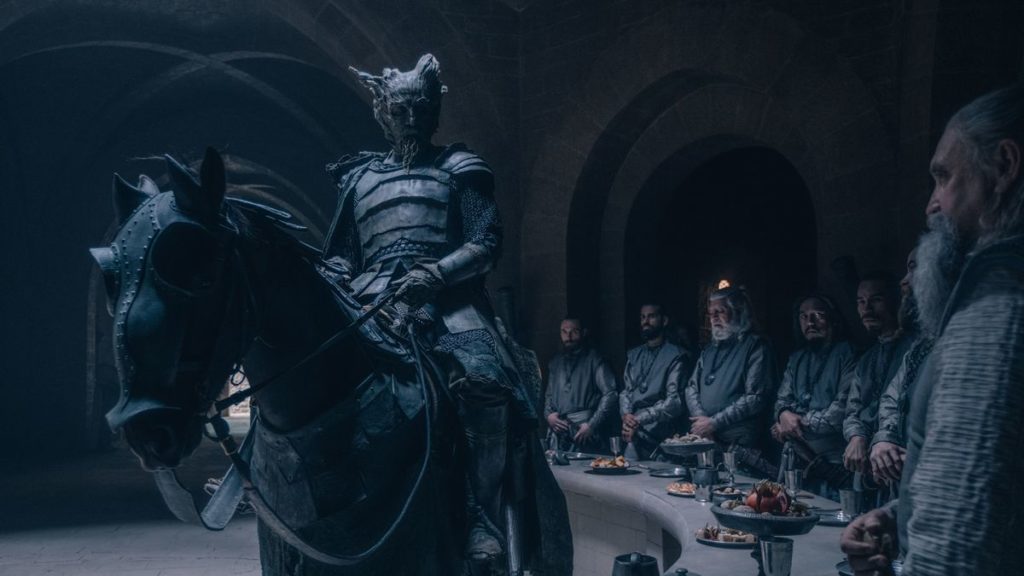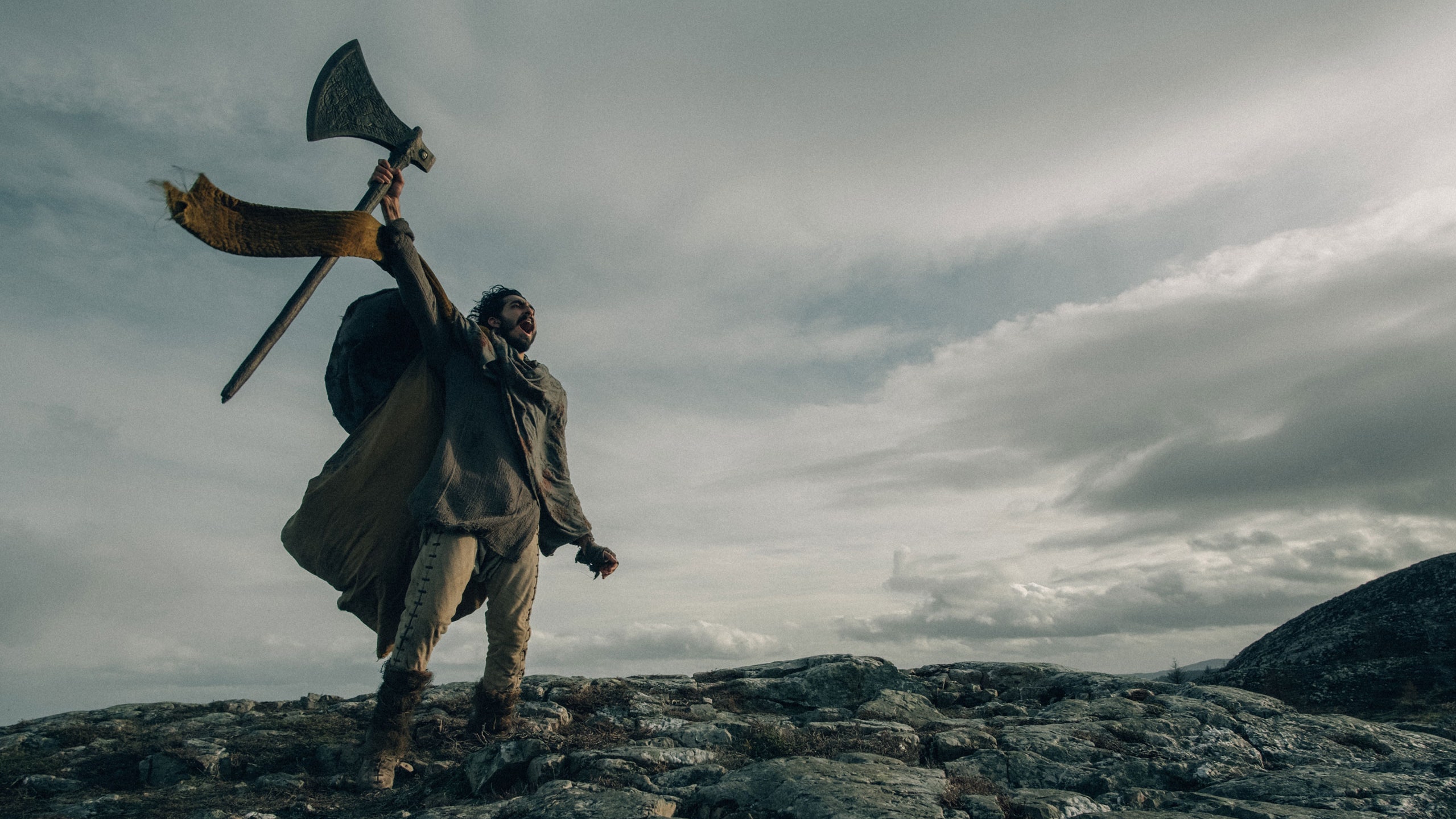The Green Knight is an adaptation of a famous Arthurian poem written in the 14th century. In the hands of a journeyman director, this could have been an epic, blockbuster telling where the hero, Gawain, is portrayed as the stereotypical chivalrous knight who learns a lesson at the end of the tale. While Gawain still does learn something by the end of this film, he’s far from an assured knight of some renown. David Lowery adapts the classic poem into a dreamy, sometimes metaphysical journey into a land populated by fantastical and mysterious beings.
On Christmas eve, Gawain (Dev Patel) spends the night with his flame, Essel (Alicia Vikander). The next day, he meets with his mother, Morgan Le Fay (Sarita Chowdhury) and attends the royal banquet with King Arthur (Sean Harris) and Queen Guinevere (Kate Dickie). The festivities are interrupted when the Green Knight (Ralph Ineson), a tree-like being, barges in and proposes a game for the knights to play. If a knight manages to land a blow on him, then one year later, he is to find the Green Knight, who will return the blow in equal measure. Gawain steps up, and when the Green Knight stands unarmed and invites Gawain to strike at his neck, Gawain beheads him. Shockingly, the Green Knight picks up his head and walks out, laughing menacingly.
A year later, Gawain sets off to find the green chapel where the Green Knight is waiting. His journey takes him through perilous and strange places, and he is tempted and tested more than once.

It’s the direction and cinematography, done by Andrew Droz Palermo, that bring the dreamlike landscapes of The Green Knight To life. There are wily ruffians rummaging through muddy battlefields, as well as a group of wandering giants who walk across the land in slow, lumbering steps.
Dev Patel puts in a career defining performance as Gawain, portraying both his resilience and doubt with equal mastery. Alicia Vikander pulls double duty, also playing the Lady of the mysterious castle that Gawain spends a few days in. She is not only a seductress, but a witchy woman, much like Morgan Le Fay. In one intense scene, the Lady remarks how decay is inevitable, that the ‘green’ will eventually claim everything.
The film evokes a key element from Martin Scorsese’s The Last Temptation of Christ, and by the end of this scene, Gawain has seen what a life without honor would lead to. He braces for death and leaves himself open to the Green Knight, who caresses him and ends the film with a strangely open-ended line. Viewers are likely to walk away from the film with their own take on the ending, and all of them are equally valid.
The journey serves as a lens for Gawain to focus on his own search for meaning. He is ashamed that he is not a great knight, and struggles to embody honor, but often, he is found wanting. Only at the end does he embrace his challenge and face it head on.
The Green Knight asks a lot from its viewers, but it also rewards them with an entrancing experience that stays with you for a while.
It provides a bold template for fantasy films that retain the strangeness of its world while allowing for a personal, meaningful story that changes its characters.






















